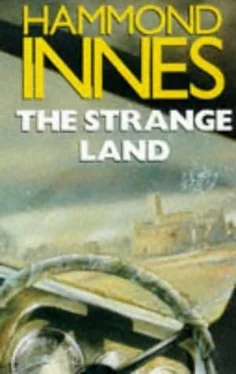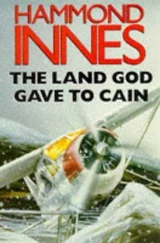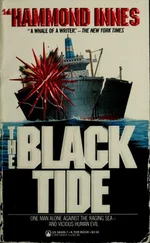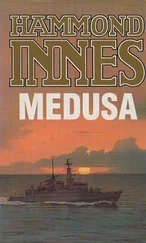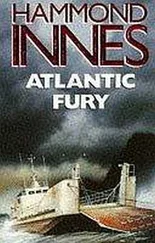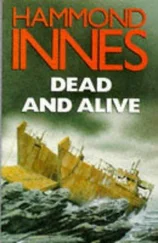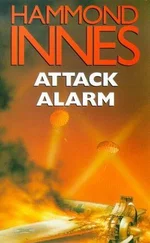Hammond Innes - The Strange Land
Здесь есть возможность читать онлайн «Hammond Innes - The Strange Land» весь текст электронной книги совершенно бесплатно (целиком полную версию без сокращений). В некоторых случаях можно слушать аудио, скачать через торрент в формате fb2 и присутствует краткое содержание. Жанр: Прочие приключения, на английском языке. Описание произведения, (предисловие) а так же отзывы посетителей доступны на портале библиотеки ЛибКат.
- Название:The Strange Land
- Автор:
- Жанр:
- Год:неизвестен
- ISBN:нет данных
- Рейтинг книги:4 / 5. Голосов: 1
-
Избранное:Добавить в избранное
- Отзывы:
-
Ваша оценка:
- 80
- 1
- 2
- 3
- 4
- 5
The Strange Land: краткое содержание, описание и аннотация
Предлагаем к чтению аннотацию, описание, краткое содержание или предисловие (зависит от того, что написал сам автор книги «The Strange Land»). Если вы не нашли необходимую информацию о книге — напишите в комментариях, мы постараемся отыскать её.
The Strange Land — читать онлайн бесплатно полную книгу (весь текст) целиком
Ниже представлен текст книги, разбитый по страницам. Система сохранения места последней прочитанной страницы, позволяет с удобством читать онлайн бесплатно книгу «The Strange Land», без необходимости каждый раз заново искать на чём Вы остановились. Поставьте закладку, и сможете в любой момент перейти на страницу, на которой закончили чтение.
Интервал:
Закладка:
‘No,’ I said. ‘A boy’s no good. He hasn’t the necessary authority. They might not admit us. But if we could get his father …’ I was thinking that a man who had a herd of goats would almost certainly be conservatively minded and a supporter of the Caid’s policy rather than of Ali’s fanaticism. I turned off the track and scrambled down the bank. Jan followed us.
The boy had stopped now and was watching us nervously. I called to him in his own language to come and speak with us, but he didn’t move. And when we came up to him he stood, regarding us with wide, solemn eyes. He was like a startled animal and at any moment I was afraid he would turn and run. But the goats had stopped and were nibbling at the reed tufts. The boy was watching them all the time and I knew that so long as the goats were there, the boy would remain. They were in his charge and the responsibility was a heavy one, for they represented considerable wealth in this starved, arid land.
I explained to him that I wanted to speak with his father, but he stared at me out of his large, awed eyes and said nothing. I repeated my request slowly and clearly. He looked at the goats as though he were afraid I might spirit them away by magic whilst I held his gaze with my strange talk. Then his eyes came back to me as though fascinated. Probably I was the first European who had ever spoken to him.
In the end I put my hand in my pocket and pulled out two hundred franc notes. I held them out to him. He smiled shyly, eagerly, and shook his head. But his eyes remained on the notes. Again I asked him if he would fetch his father for me.
I knew he understood and I waited. His gaze alternated between my face and the notes in my hand. Then suddenly he leaned forward, swift as a bird, grabbed them from my fingers, and with a little shriek of excitement went scampering away after his goats which had gradually merged into the dusk as they drifted from reed tuft to reed tuft.
We watched him rounding them up with shrill cries of Aiya, Aiya, driving them towards the ruined kasbah. ‘Will he bring his father to us?’ Jan asked.
‘I think so,’ I said, and we went on to the caravan.
We had just settled down to tea when the boy’s figure went flying past, bare feet scuttering over the sand, scarcely seeming to touch the ground; a small, flickering shadow in the gathering dusk.
I turned the bus then and switched on the sidelights, and soon afterwards the boy appeared with his father. He was an oldish man, tall and slightly stooped, with a long, pale face heavily lined with years of sun and sand. We exchanged greetings and I invited him into the caravan. He sent the boy off and, after slipping his feet out of his sandals, he climbed in and seated himself cross-legged on the berth. From an inner pocket he produced the two hundred franc notes I had given his son and held them out to me. ‘My son is not to be paid for bringing his father to you, sidi,’ he said.
I insisted that he return the money to the boy and then Julie brought the coffee I had asked her to make and we talked. His name was Moha and he was the chief of a small village at this end of the palmerie. He was a man of some substance, with fifty goats and more than a hundred palm trees, and he had a daughter married to the son of the Khailifa, the Sultan’s representative at Foum-Skhira. He talked about the failure of the date harvest and how a year ago French experts had examined the trees and then the ‘machine like a bird had arrived and covered the date palms with smoke’.
‘And didn’t it do any good?’ I asked.
‘Insh’ Allah!’ He shrugged his shoulders and smiled.
But the smile didn’t extend to his hard, grey eyes. ‘The French officer has told us that it is the only hope for the trees and we believe him because he is wise and like a father to us. But this year I have no dates, sidi. No man is sure any more.’
It was the perfect situation for a man like Ali to exploit. I asked him if he knew that the Caid’s son had returned to Foum-Skhira. He nodded and I was conscious of a stillness about him, a sudden mental wariness. His eyes were hooded by the pale lids and the curved, predatory beak of his nose made him look like an old hawk.
‘Do you know why he has returned?’ I asked. But he didn’t answer. He had finished his third cup of coffee and, according to Berber etiquette, he would now take his leave. ‘You are a friend of Caid Hassan,’ I said.
He nodded, gathering his djellaba about him.
‘We wish to see him tonight. It is important. Will you take us to him?’
‘He is a sick man, sidi.’
‘I know. But we have to see him. Will you take us?’
‘Tomorrow perhaps.’
‘No.’ I said. ‘It must be tonight. At least guide us as far as the kasbah.’
He stared at me, his eyes narrowed slightly. Then he shook his head. ‘He is sick,’ he repeated.
Jan got up then. ‘Ask him,’ he said, ‘whether he was here when Lieutenant Duprez drank tea with Caid Hassan between the lines.’
The Berber’s eyes lit up suddenly as I asked him the question. ‘lyyeh, sidi. I was there.’
I told him then that Jan had been Duprez’s friend, that he had been with him when he died, and he stared at Jan, smiling and bowing as though greeting him for the first time. ‘He has a message for Caid Hassan from Capitaine Duprez,’ I added. ‘It is important.’ And then I asked him again if he’d take us to the kasbah.
He got to his feet then. ‘Very well.’ He nodded. ‘I will take you to Caid Hassan.’
I opened the door for him and he stepped out into the night.
Jan followed him. Julie caught hold of my arm. ‘Do you have to go with him, Philip?’
‘You’ll be all right,’ I said. ‘Ed White will be down from the gorge soon and — ‘
‘It’s not that,’ she said quickly. She was staring up at me. Then she turned away. ‘Well, be careful. This place isn’t like the mountain villages round Enfida.’ She picked up the coffee things and went through into the kitchenette.
I stepped down to the ground and closed the door. The little lit world of the caravan seemed suddenly small and remote, an oasis of light in the desert of darkness that surrounded it. The sky was clear and the bright starlight showed us the shape of the mountains crouched above the camp. The sound of White’s bulldozer came down to us from the gorge. There was no wind, but already the air was cold, with that still, frosted cold of a land where the soil had no humus to absorb and retain the heat of the sun.
We followed the piste down until, looking over my shoulder, the bus was no more than a yellow pinpoint of light in the immense black shadow of the mountains. Then we entered the palmerie and the trees hid even that small indication of human existence. We were alone in a cold, alien world.
It was very dark under the palms and we stumbled along countless small earth banks built to retain the water in the cultivated patches where millet would be grown. But finally we came out on to the bank of a deep irrigation ditch. The path was like a switch-back, but the going was easier. Occasionally a star was reflected below us. It was the only indication that there was water in the ditch. We followed the glimmering white of Moha’s djellaba through a world of almost complete blackness. All my eyes consciously saw was the still, fantastic shapes of the palm fronds standing darkly against the stars. My feet seemed to develop a sense and a feel for the ground. They found their way by a sort of instinct that was quite divorced from the control of my brain.
We came to a bridge of palm trunks spanning the ditch and there our guide told us to wait whilst he went into his village. We could hear him beating on the wooden door of his house and there was a dog barking. Then there was silence again. ‘I suppose you’ve got the deeds with you?’ Though I kept my voice to a whisper, the sound of it seemed loud.
Читать дальшеИнтервал:
Закладка:
Похожие книги на «The Strange Land»
Представляем Вашему вниманию похожие книги на «The Strange Land» списком для выбора. Мы отобрали схожую по названию и смыслу литературу в надежде предоставить читателям больше вариантов отыскать новые, интересные, ещё непрочитанные произведения.
Обсуждение, отзывы о книге «The Strange Land» и просто собственные мнения читателей. Оставьте ваши комментарии, напишите, что Вы думаете о произведении, его смысле или главных героях. Укажите что конкретно понравилось, а что нет, и почему Вы так считаете.
